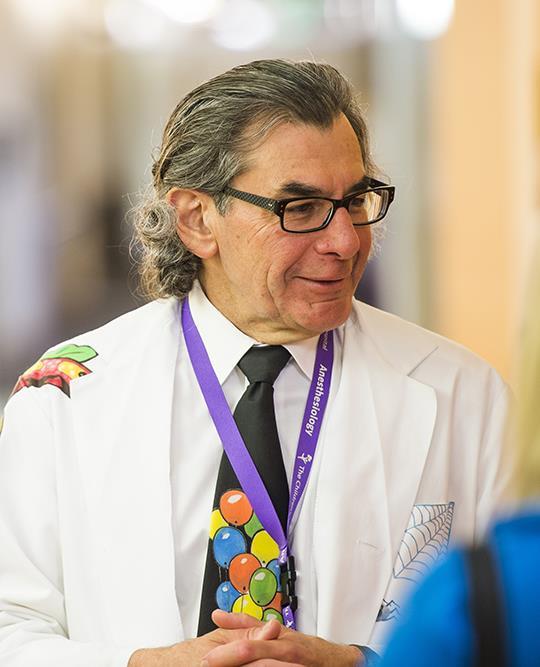- Doctors & Departments
-
Conditions & Advice
- Overview
- Conditions and Symptoms
- Symptom Checker
- Parent Resources
- The Connection Journey
- Calm A Crying Baby
- Sports Articles
- Dosage Tables
- Baby Guide
-
Your Visit
- Overview
- Prepare for Your Visit
- Your Overnight Stay
- Send a Cheer Card
- Family and Patient Resources
- Patient Cost Estimate
- Insurance and Financial Resources
- Online Bill Pay
- Medical Records
- Policies and Procedures
- We Ask Because We Care
Click to find the locations nearest youFind locations by region
See all locations -
Community
- Overview
- Addressing the Youth Mental Health Crisis
- Calendar of Events
- Child Health Advocacy
- Community Health
- Community Partners
- Corporate Relations
- Global Health
- Patient Advocacy
- Patient Stories
- Pediatric Affiliations
- Support Children’s Colorado
- Specialty Outreach Clinics
Your Support Matters
Upcoming Events
Mental Health Town Hall
Tuesday, April 23, 2024Join Children’s Hospital Colorado pediatric experts for a virtual...
-
Research & Innovation
- Overview
- Clinical Trials
- Q: Pediatric Health Advances
- Discoveries and Milestones
- Training and Internships
- Academic Affiliation
- Investigator Resources
- Funding Opportunities
- Center For Innovation
- Support Our Research
- Research Areas

It starts with a Q:
For the latest cutting-edge research, innovative collaborations and remarkable discoveries in child health, read stories from across all our areas of study in Q: Advances and Answers in Pediatric Health.


Neuromuscular Clinic
Spinal Muscular Atrophy (SMA)
We treat kids like they should be treated: like kids. That’s why we designed our hospital just for them.

What is spinal muscular atrophy (SMA)?
Spinal muscular atrophy is a genetic disorder that affects the control of muscle movement. It is caused by a loss of specialized nerve cells, called motor neurons, in the spinal cord and the part of the brain that is connected to the spinal cord. The loss of motor neurons leads to weakness of muscles used for activities such as crawling, walking, sitting up and controlling head movement.
What causes SMA?
In each of the cells that make up our bodies, people have their inherited information on structures called chromosomes. The normal number of chromosomes is 46, which are present in 23 pairs.
We receive 23 chromosomes, one member of each pair, from each of our parents at the time of conception. Each chromosome may have hundreds or thousands of genes. Since chromosomes are paired, we subsequently also have two copies of each gene, one from each parent. The 23rd pair of chromosomes are the sex chromosomes and they determine gender. Males have an X and a Y chromosome while females have two X chromosomes.
Autosomal recessive conditions, such as SMA, require that a person inherit two nonworking copies of the same gene (SMN1), one from each parent. Studies have shown that approximately one person in 50, or 2% of the population, are carriers of SMA. Carriers of recessive conditions do not have medical problems associated with having one nonworking gene, since their one functioning copy of the gene prevents the deleterious effects of the other copy.
Symptoms of SMA only manifest themselves when a person inherits two nonworking copies of this gene. This condition may affect males or females since the responsible gene is not on the sex chromosomes.
Who gets SMA?
SMA affects about 1/10,000 individuals. It is seen across all genders and ethnicity.
What are the signs and symptoms of SMA?
SMA consists of a spectrum of disease and has been classified into 5 types.
SMA type 0
SMA type 0 is the most severe form of SMA.
Symptoms may include:
- Congenital hypotonia (decreased muscle tone)
- Severe joint contractures (joint shortenings)
- Digital contractures (finger or toe tightening)
- Facial diplegia (bilateral facial paralysis)
- Respiratory failure
- Possible fractures
SMA type 0 is typically fatal in the womb or shortly after birth due to the severity of the disease.
SMA type 1 (Werdnig-Hoffman Disease)
Symptoms of SMA type 1 have an onset between birth and 6 months of age.
Symptoms may include:
- Hypotonia
- Muscle weakness (with facial muscles spared)
- Alert appearance
- Respiratory insufficiency (“belly breathing”)
SMA type 2
Symptoms of SMA type 2 have an onset between 6 and 18 months of age.
Symptoms may include:
- Hypotonia
- Muscle weakness (with facial muscles spared)
- Alert appearance
- Normal cognition (process of acquiring knowledge and understanding through thought)
- Reduced or absent deep tendon reflexes over time
Milestones may include:
- A weak sitting (tripods)
- Poor roll and crawl
- Ability to stand but not walk without assistance
SMA type 3 (Kugelberg Welander Syndrome) and type 4
Symptoms of SMA type 3 have a typical onset of greater than 18 months, but age can range from 18 months to late teenage years depending on symptoms present. SMA type 4 is typically defined as onset in adulthood.
The range of symptoms and severity of type 3 and 4 symptoms ranges greatly among affected individuals. Symptoms may include:
- Hypotonia and muscle weakness that is symmetric and proximal
- Decreased or absent reflexes
- Troubling rising from the floor (gowers' sign)
- A different gait
What tests are used to diagnose SMA?
A blood test can be done to look for the genetic changes associated with SMA. It is important that the testing ordered can detect SMN1 deletions and sequence variants as well as SMN2 copy number.
Why choose Children's Colorado for SMA testing?
Children's Colorado's Neuromuscular Program specialize in diagnosis and management of neuromuscular conditions like SMA. We're the only hospital in the region with this type of clinic. Children's Colorado is active in SMA clinical trials and is administering Spinraza.
What to expect from SMA genetic testing?
Genetic testing is done with a blood sample obtained by a pediatric phlebotomist (an expert who draws blood) at Children's Colorado. Results usually take about two weeks.
How do providers at Children's Colorado make a diagnosis?
SMA is typically suspected after obtaining a medical history and clinical examination by a provider at the hospital. If SMA is a suspected diagnosis, the neuromuscular care coordinator is introduced to the family to assist with coordination of testing and establish care in the Neuromuscular Program.
How is SMA treated?
We follow the consensus care guidelines that have been published for SMA. At each clinic visit we provide information about ongoing clinical trials (at our site and nationally) to all families.
Additionally, we have a dedicated inpatient team that helps with continuity of care between clinic and hospitalizations. Many individuals with SMA may require scoliosis surgery, and Children's Colorado has a nationally recognized high-risk spine pathway that reduces complications and recovery time.
Why choose Children's Colorado for your child's SMA treatment?
The Neuromuscular Program at Children's Colorado has more than 30 years of experience working with kids and young adults with SMA.
In addition to providing care based on consensus guidelines, the clinic team is active in clinical research for future treatments of SMA. Currently four of our Neuromuscular Program providers are serving on the medical advisory board of Cure SMA.
Next steps
-
Would you like to learn more about us?
Learn more about the Neuromuscular Clinic -
Do you have questions about your child’s condition?
720-777-2806 -
Are you ready to schedule an appointment?
Schedule an appointment
Get to know our pediatric experts.


Michele Yang, MD
Neurology - Pediatric

Michael Handler, MD
Neurosurgery, Neurosurgery - Pediatric

Oren Kupfer, MD
Pulmonology - Pediatric, Pediatrics



 720-777-0123
720-777-0123




